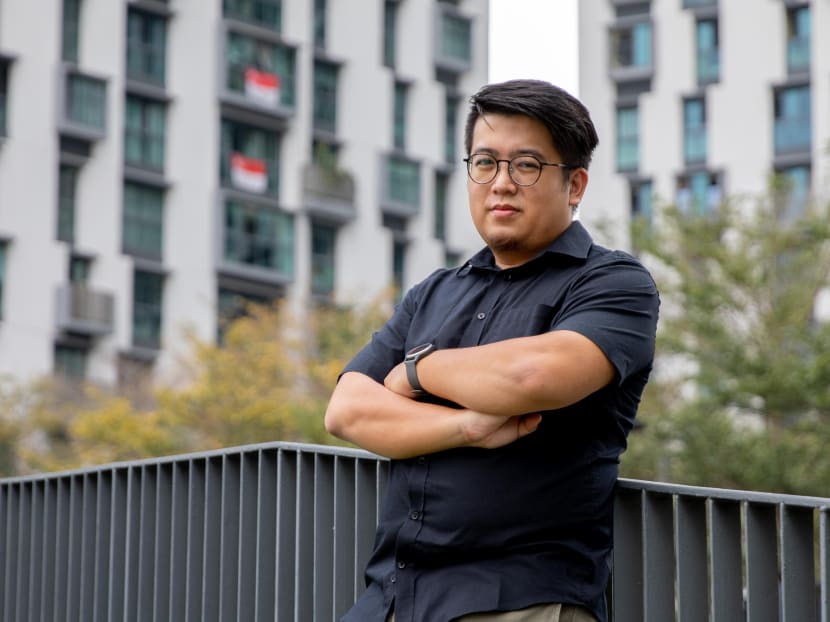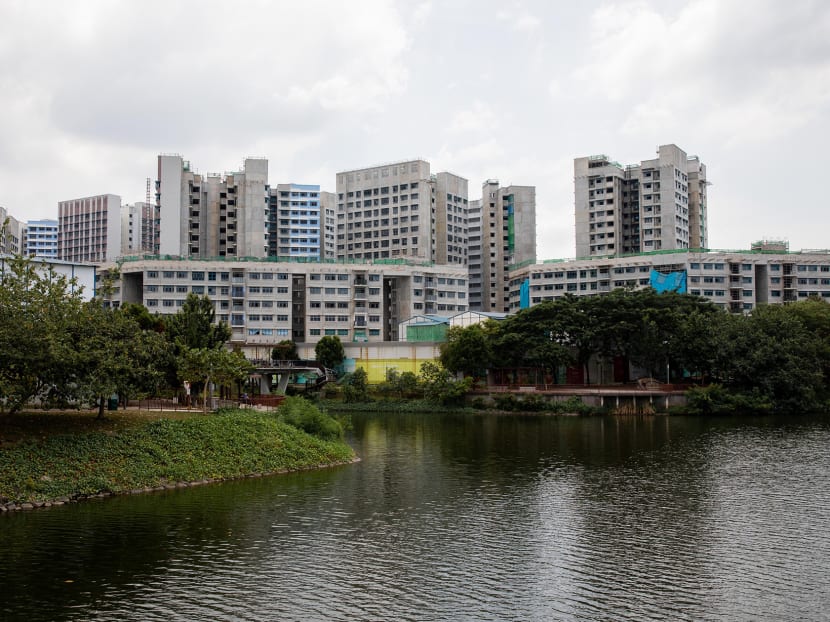Adulting 101: My first BTO flat — a home to sink roots and build a family or a money spinner?
SINGAPORE — Occasionally, I make a visit to Punggol to stand along the waterways and gaze at giants rising from the earth.

Recent conversations with friends have made TODAY correspondent Ng Jun Sen question whether he is being too dewy-eyed about his Build-To-Order flat and if he should instead view it as nothing more than a financial investment.
Adulthood is an invigorating stage of life as young people join the workforce, take on more responsibilities and set their sights on the future. But its many facets — from managing finances and buying a home to achieving work-life balance — can be overwhelming.
In this series, TODAY’s journalists help young Singaporeans navigate this stage of their lives and learn something themselves in the process.
SINGAPORE — Occasionally, I make a visit to Punggol to stand along the waterways and gaze at giants rising from the earth.
I am talking about the upcoming public housing projects that have sprung up in recent years along the promenade.
Looking at them, I would think about how each flat tells a story of fresh beginnings and, more often than not, a young family starting life anew.
I’m freshly sentimental about all this because my fiancee and I recently booked a Build-To-Order (BTO) flat in Punggol with the Housing and Development Board (HDB).
It is due to be completed years from now and that has had me thinking about our upcoming life together and how a little corner of the world will be mine to call home.
But recent conversations with friends have also made me question whether I’m being too dewy-eyed about this flat and if I should instead view it as nothing more than a financial investment, something to sell for a profit once the five-year minimum occupation period is reached.
Many of my peers who are also applying for a BTO unit or have already booked one seem to have this more dispassionate view: They believe it is a no-brainer that one should sell a BTO unit as soon as possible, while it is still relatively new, so as to reap sizable profits.
“Where else would you stand to earn a six-figure sum in one go?” one friend noted.
“Isn’t this the reason why you got a BTO in the first place?” another asked.
This second friend even suggested that I spend less on renovation so that I could stand to reap bigger gains later on. Paint your walls white, he advised, since that will make the unit easier to sell.

GAINS FROM 'FLIPPING' BTO FLATS
Mr Lee Sze Teck, senior director and head of research at real estate group Huttons, said that unlike in the private housing market, where newer units are generally more expensive than older ones, HDB flats work in the opposite way because they are heavily subsidised at launch.
A new BTO flat could be priced roughly 20 per cent lower than similar resale flats nearby, he said, citing his agency’s data.
In the most recent BTO launch last November, for example, a new four-room unit in Toa Payoh excluding grants cost S$466,000. The median price of a four-room flat in Toa Payoh on the resale market during that same period was S$566,000.
Lately, HDB resale prices have been rising steadily — up around 3 per cent over three consecutive quarters, based on HDB’s latest flash estimate.
Million-dollar flats have become almost commonplace. Last year alone, 82 HDB flats were resold for more than S$1 million each and in the first half of this year, it was already 106 flats for such prices.
'POCKETING' TAXPAYERS' MONEY
Proponents of the BTO-and-flip strategy argue that it is rational for citizens to take a proverbial bite of the cherry. Doing otherwise would mean leaving money on the table that could be used to upgrade to a bigger and better home.
But there is still a part of me that is adamant: What if this BTO flat I’ve booked turns out to be a lovely home that I might want to live in for much longer than five years?
Would I be foolishly giving up a tidy sum of funds for no good reason if I choose to live there for a long time?
Mr Christopher Gee from the Institute of Policy Studies who specialises in governance and economy said that the sum of money does not really belong to profiteering homeowners.
“The question really is: Whose money is being left on the table? It’s the taxpayers’,” he said.
“You were given this subsidy because the Government wants to help young families build their first home. But if you’re entering into (a BTO purchase) mainly for the prospect of a windfall, it perverts the motivation for such subsidies.”
There are, of course, practical reasons to sell a flat. For example, the arrival of a new child that necessitates a move to a bigger space or the need to live near an ageing parent.
But at least among my millennial peers, the profit they would stand to gain seems to be the most important factor driving their plans to sell their BTO flats at the five-year mark.
Statistically, there is some evidence to show that younger people are changing addresses more often than past generations, too.
A paper published by the Department of Statistics in 2006 found that between 1995 and 2005, 69 per cent of younger households changed their residence, compared with fewer than 40 per cent among those aged 50 and above.
While the data is relatively old, Professor Sing Tien Foo, director of the Institute of Real Estate and Urban Studies (IREUS) at National University of Singapore, believes that the findings would look similar if the survey were to be done again today.
He warned that the profit-seeking mindset, if it becomes prevalent, could have long-term repercussions. If most HDB owners look to flip their first homes as soon as possible, and there are too few long-term owner-occupiers, it could throw the whole market off balance and prices could come crashing down.
“Usually, speculators are a small group. But if there is a big proportion of speculators on the market, then it could be very dangerous because not everyone will get the price that they want,” Prof Sing said.
Such housing bubbles could also pose a threat to the overall economy, as the world has learnt from the financial crises of the past two decades.
Another possible long-term effect, analysts said, is that housing prices keep climbing because of speculative behaviour, which means people would have to spend bigger proportions of their savings on their homes, leaving less for everything else, especially if incomes do not keep pace.
Profits would also count for little in such a scenario: Even if you “sell high”, you would also have to “buy high”.
THINGS TO CONSIDER WHEN SELLING
One key lesson I’ve taken away from talking to the analysts is that the housing market may seem very rosy now for resellers, but as with all markets, prices can and do fluctuate.
Mr Lee from Huttons said the truth is that no one really knows how the HDB resale market will perform in the future.
“The free market is not within anyone’s control, though sometimes the invisible hand of government policies does affect prices. But by and large, the market will come to an equilibrium and decide how much assets should be priced,” he said.
There is the possibility that sellers could end up making a loss, or perhaps only meagre profits, especially after taking other factors into account such as renovation costs, stamp duties and property agents' commissions.
All Central Provident Fund (CPF) monies used to buy the flat, including any CPF housing grants, must also be returned to the CPF, including any accrued interest that would have been earned if those funds were not used to buy the flat.
Mr Nicholas Mak, head of research and consultancy at ERA Realty, said: “So if you are comfortable living in that place, if it serves your family well, if you like the community there, why sell?“
He added that people should upgrade to a bigger flat or to private housing only when they have the financial means to do so.
I know there may come a time when my first home might not fulfil the needs of my family anymore. But until then, I really don’t want to cut corners on renovation, or paint my walls white just for the possibility that a future buyer may offer me slightly more money down the road.
Ultimately, my BTO flat will be a home. Any profit I might make in future would be a bonus, but my priority is my family’s needs and preferences.
As Prof Sing said: “The monetary gain is a short-term thing. In the long-term, building a home is everything.”
ABOUT THE WRITER:
Ng Jun Sen is a correspondent at TODAY whose interests include economics, property, politics and technology.











